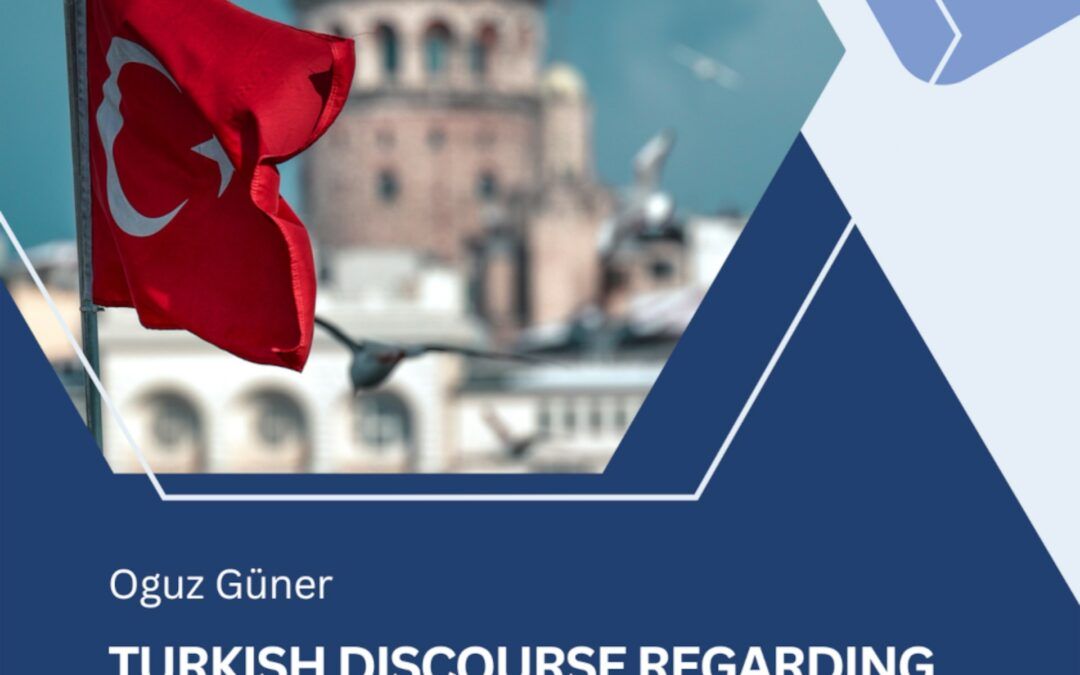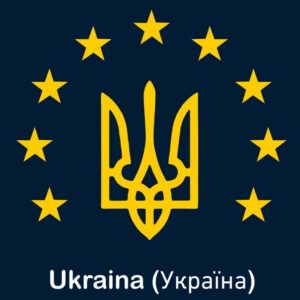Introduction
The aim of this study is to analyze the discourses on Türkiye before and after the Brexit process. As a method in the study, a literature review was conducted and the content analysis method was preferred. In this context, the historical background of Brexit was examined and the process from the beginning to the end of Brexit was analyzed from the perspective of political communication. Additionally, Turkish and foreign academic sources and publications on how the subject was handled in national and international media were examined.
Brexit supporters essentially built their propaganda on the Türkiye discourse. According to them, if Türkiye became a member of the Union in the near future, the possible migration flow from Türkiye would also come to the United Kingdom (UK) via Europe. This migration flow would consist of both Türkiye’s young population moving to Europe and Syrians and immigrants from other nationalities. Although this was the primary factor, the secondary factor was also related to Türkiye being a Muslim country. As a result, England left the European Union (EU) and Türkiye is still waiting to become a member of the Union. It seems that this wait will also take a long time.
Historical Background of Brexit in the context of Political Communications
The concept of political communication encompasses not only the strategies political parties use to persuade the public to gain votes during election periods but also any form of communication activity in which political actors engage with the public. With the increasing digitalization of communication and media, and the widespread use of social media platforms, it has become easier for political communication strategies to connect with the public. Furthermore, the reactions and feedback from the public to these communication strategies make it possible to measure their impact and evaluate their effectiveness. Therefore, political communication activities should be able to address the problems of people in a realistic and measured way. These reasons suggest that social media platforms will play an increasing role in political communication and will be frequently used in political communication activities[1]. On the other hand, it should be stated that the use of social media in the field of political communication adds a different dimension to political actors, citizens and even societies. So much so that the possibility of widely accessing and sharing all kinds of political information and participating in political activities online has led to a transformation in political communication[2].
Indeed, during the recently concluded process of UK’s withdrawal from EU, the sides advocating for remaining within the Union and those in favor of leaving employed political communication strategies to secure a majority vote in the referendum. The period preceding the referendum on whether the UK should exit the EU or retain its membership is commonly referred to as “Brexit”.
The term “Brexit” is an abbreviation of the combination of the words “Britain” and “exit”, and it signifies the most fundamental constitutional reform since the UK joined the European Economic Community (EEC), consisting of six member countries, in 1973. Ireland, Denmark and the UK applied to the EU for membership in 1961. In fact, other countries, except France, were favorable to the UK’s membership. However, the French President of the time, Charles De Gaulle, opposed the UK’s membership because he thought that the UK was different from continental Europe, that it was experiencing great economic difficulties at the time, and that it was militarily and diplomatically dependent on the United States of America (USA), which he saw as an obstacle to the development of the EU. Yet, the UK applied again in 1967 and was again rejected on the same grounds. The enlargement process for Ireland, Denmark and the UK started in 1969 after De Gaulle resigned as President of France and these countries joined the EU on January 1, 1973. And this was essentially the first of the 6 enlargement periods that the EU has realized so far. The UK decided to leave the EU in a referendum held in 2016. Article 50 of the Lisbon Treaty was put into effect after 52% of the British people voted in favor of leaving in the referendum and thus the UK had to leave the EU.
As a result of Brexit, the European bloc lost one of its members for the first time. In the face of the EU’s enlargement policies, British nationalism and skepticism towards Europe had been on the rise[3]. Euroskepticism, defined narrowly as opposition to a particular course of action or integration effort, is only one component of public opinion toward the EU[4]. Euroskepticism is known to have first emerged in UK and spread across Europe over time. It is a state of opposition and skepticism towards EU integration. Therefore, individuals or politicians who are against integration should also be defined as “Euroskeptic”. It implies a principled opposition to the EU and European integration. Those who hold this view argue that their country should leave the membership and even oppose the very existence of the EU[5].
Although the UK had questioned its position within the Union and the Union’s economic and expansion policies during its membership, it had not taken any official steps to leave the Union until 2016. Criticism of EU membership began to be voiced loudly after the formation of a coalition government following the 2010 elections in the UK. The Brexit referendum has brought about a process of rising populism and repositioning of political parties, shaken territorial integrity in the UK and raised questions about the future in foreign policy[6]. Then Prime Minister David Cameron, in an effort to both preserve his position and silence the growing anti-EU voices, proposed a referendum on leaving the EU[7]. As a result of the referendum held on June 23, 2016, the British public voted to leave the EU by a narrow margin of 51.9%.
Throughout the referendum campaign, supporters of Brexit and those in favor of remaining in the EU competed fiercely through political communication campaigns aiming to shape the public opinion. During the preparations for the Brexit referendum, two official campaigns conducted were respectively announced as “Britain Stronger in Europe” and “Vote Leave”. These campaigns involved a considerable amount of disinformation and populist rhetoric. In general, those in favor of the UK to stay in the EU argued that leaving the EU would lead to economic difficulties, that the UK held a counterbalancing position against Germany’s influence within the EU, and that the country had significant prestige in the international system, which would be lost to its detriment. On the other hand, those advocating for leaving the EU attempted to highlight potential scenarios the country might face, particularly regarding immigration and the economy, if it remained within the Union.
Main “Türkiye-themed” arguments and discourses used in Brexit Process
In the UK, in addition to the United Kingdom Independence Party (UKIP), three other key groups conducted the campaign for leaving the EU. These groups were “Vote Leave”, “Grassroots” supported by UKIP and “Leave EU”. However, on April 13, just two days before the official start of the campaign, the Electoral Commission designated “Vote Leave” as the official campaign in favour of leaving the EU[8].
Among the Brexit supporters, both “Vote Leave” and UKIP frequently emphasized sovereignty, immigration, and the economy during the campaign. “Vote Leave” primarily focused on sovereignty and the economy, while UKIP emphasized immigration throughout the campaign[9]. On the other hand, while those in favor of remaining in the EU focused on the economic benefits of staying within the EU, the side advocating for leaving emphasized sovereignty with the slogan “take back control” and highlighted immigration-related rhetoric[10]. Kılıçarslan examined post-Brexit discourse analysis by studying The Sun, The Daily Mail, and The Daily Express newspapers[11]. The analysis revealed that the discourse used in the news reports was primarily grounded in themes of sovereignty, immigration, security-terrorism, and, lastly, the economy. In this study, the news media was shown to construct a negative perception of the UK within the Union while simultaneously presenting a positive and sovereign image of the UK outside the EU. Finally, the news media instrumentalized anti-immigrant rhetoric, portraying the EU negatively by depicting it as a superstate overshadowing the sovereign British state[12].
The group, mostly consisting of Conservative Party members, initially avoided focusing on immigration and, consequently, Türkiye. Instead, they concentrated on presenting the economic reasons for Brexit. This can be explained by the fact that it had already become evident that the official “Britain Stronger in Europe” or simply “Stronger in” campaign, which was in favor of staying in the EU, had won the economic argument. A few days after the official start of the campaign, actors who believed that the UK should leave the EU shifted their focus away from economic-based rhetoric. In the subsequent stages of the campaign, they centered their messaging on immigration-related issues[13]. The phenomenon of immigration, which was evaluated within the context of sovereignty and border security, was addressed with the aim of increasing the effectiveness of the nation-state[14].
During the Brexit Referendum campaigns, actors in favor of leaving the EU attempted to persuade the public to vote for Brexit by raising concerns about the issues the country would face if the UK’s EU membership continued. One of the arguments used in this context was the membership of candidate countries in the EU. These countries include Albania, Montenegro, Macedonia, Serbia, and Türkiye. In these narratives, Türkiye’s larger population compared to other candidate countries was emphasized; suggesting that in the event of Türkiye’s EU membership, there would be a higher influx of immigrants from the country. It was argued that this situation would create pressure on public services in the UK, pose security risks, and have a negative impact on the country economically[15]. At this point, it is evident that the discourse targeting Türkiye played a prominent role in the campaign. For example, on May 20, “Vote Leave” campaign published a report highlighting that Türkiye’s EU membership would exert unbearable pressure on the national healthcare system. In the following days, the campaign continued its attacks on Türkiye[16]. Supporters of leaving the EU instrumentalized discourses related to Türkiye[17]. During the Brexit period, Türkiye as one of the countries with ongoing EU accession negotiations was the subject of discourse concerning the issue of migration throughout the Brexit campaign[18]. Particularly, concerns about immigration were exploited, and claims were made that many unemployed Turkish youths would settle in the UK if Türkiye became a member of the EU that included the UK. It was argued that this would lead to labor shortages in the UK and negatively impact the country’s economy[19]. As Aydın-Düzgit pointed out in her article, some groups in the EU were considering the possibility of Turkish citizens benefiting from rights such as visa-free travel and freedom of movement for coming to the UK following Türkiye’s membership to EU as a security concern[20].
The arguments during the period indicate that Türkiye’s NATO membership and its indispensable role within the alliance to support security in Europe and beyond have been disregarded. NATO’s founding philosophy was based on the concern that European states would not be able to provide their own security and thus establishing an alliance against the Union of Soviet Socialist Republics (USSR), which was perceived as a “common threat” was considered necessary[21]. Unwilling to accept the USSR’s domination in Europe, the USA intended NATO to establish the security of Europe. In this case, it was believed that Türkiye’s contribution to European security would be critical. By becoming a member of NATO, Türkiye would register its European identity in a sense, which was in line with Türkiye’s “Westernization” policy[22]. However, Türkiye, which was a member of NATO, already had the second largest army in the alliance, and occupied a strategic position between Europe and Asia, has yet to become a member of the EU.
In the Copenhagen Criteria, candidates who want to become members of the Union are expected to accept the political criteria, economic criteria, and the community acquis. Candidate countries within the scope of political criteria; must have a stable institutional structure where democracy, rule of law, human rights, protection, and acceptance of minorities are guaranteed. Under the economic criteria, candidate countries must have a well-functioning market economy and the capacity to withstand market forces and competitive pressure within the EU. Finally, at the point of adoption of the Community acquis, candidate countries must have the capacity to undertake and implement EU legislation, including compliance with the objectives of political, economic and monetary unions. Among these, political criteria, namely democracy, rule of law, human rights, and respect for minorities, are prerequisites for the start of EU membership talks. The negotiation process is not initiated with a country that does not meet these criteria. This being the case, it should be stated that there is also a European perception put forward in terms of culture and religion. Türkiye can be shown as an example in this regard. Because although Türkiye is located on the European continent (in terms of its territory), it is not considered European in terms of the EU. Therefore, when European identity is taken as a criterion, Türkiye is marginalized as “them”. This situation is inevitably considered as the identity that the EU has started to create being inclusive for some countries and exclusionary for some countries in terms of preserving its essence[23]. The claims, emphasizing national borders and sovereignty, were used to persuade the public to vote for Brexit by suggesting that uncontrolled migration from Türkiye could bring numerous problems, from disruptions in public services to economic collapse. One of the reasons for discussing Türkiye’s EU membership during these debates can be explained with the rising Islamophobia during the same period. Islamophobia has emerged as a frequently encountered concept in the literature of social sciences such as political science, international relations and sociology. For this reason, it is widely used in public and academic circles. The concept was first developed in the late 1990s and early 2000s by political activists, non-governmental organizations (NGOs), public commentators and international organizations. The aim was to draw attention to harmful discourse and actions against Islam and Muslims, especially in Western liberal democracies. For these actors, the term not only describes anti-Islamic and anti-Muslim sentiments, but also provides a language to condemn them[24].
In the wake of terrorist attacks in France and Belgium, anti-Islamic sentiment in the UK had strengthened. UKIP, before the referendum, made statements emphasizing Türkiye’s large population and Muslim identity, warning of the danger of its EU membership within five years. The message conveyed was that the UK should leave the EU before Türkiye becomes a member[25]. Throughout their campaign, Brexit supporters combined anti-immigrant sentiment with Islamophobia. In this context, they argued that if Türkiye were to join the EU, the country’s proximity to countries like Iraq and Syria, as well as its role as a buffer country, would be lost, posing a threat to the UK’s border security and national sovereignty[26].
During the Brexit campaign, proponents of leaving the EU tried to exploit the concerns of the public by suggesting that if Türkiye’s EU membership negotiations were successfully concluded, it would facilitate the entrance of approximately 3.5 million Syrian refugees and other third-country nationals currently residing in Türkiye to the UK[27]. Additionally, the Brexit referendum campaign was framed around claims that not only refugees living in Türkiye but also Turkish citizens would benefit from the freedom of movement rights granted to EU citizens, making it easier for them to enter the UK[28]. Nigel Farage, the leader of UKIP and one of the most active actors in the Brexit campaign, repeatedly emphasized during the campaign that if the UK continued its EU membership, it would be forced by Germany and the British government to accept Türkiye as a new member. Farage also emphasized that this situation would mean the UK becoming open to 80 million economic migrants[29].
During the run-up to the referendum, the debates around Türkiye were intensified. The two sides argued the relevance of Türkiye and its potential membership to the EU. While the “IN” campaigners underscored that “Türkiye should not be an issue in the referendum as Turkish accession will not happen until the year 3000”, the supporters of Brexit claimed that Türkiye’s potential for membership is a reality and the UK government officially engage in the process[30]. The language used by “IN” campaigners about Türkiye’s accession to the Union also casts a shadow on the country’s strengths and strategic significance, implying that Türkiye falls short of meeting the EU’s standards and that its accession is a far prospect. Boris Johnson, former Foreign Secretary of the UK, was the co-signatory of a letter to the prime minister, just a week ago of the referendum. In the letter, it was stressed that it was the policy of the EU that Türkiye should join the EU and both the EU and the UK “were paying billions to Türkiye” aiming to facilitate its accession. The letter raised questions about the UK government’s future steps regarding Türkiye’s accession and added that if the government could not guarantee it would block accession, “the public will draw the reasonable conclusion that the only way to avoid having common borders with Turkey is to vote leave and take back control on 23 June”[31]. These debates indicated that Türkiye’s membership to the EU was on the agenda of many officials and narratives regarding the issue used to shape the outcome of the referendum. Meanwwhile, Johnson later claimed that he did not say anything about Türkiye during the referendum, a claim later refuted by many media outets[32].
While Brexit supporters made these claims with the assumption that the UK would unconditionally accept the EU’s visa and freedom of movement policies, this assumption did not reflect the reality. During its EU membership, the UK preferred to implement policies it believed were in its national interest and safeguard its sovereignty rather than adhere to the EU’s regulations, especially in the areas of immigration and visa-free travel[33]. In this context, it could be argued that those campaigning for Brexit manipulated public concerns with unfounded claims.
One of the points that Brexit supporters frequently referred to when using these claims in their campaigns was the EU-Türkiye Readmission Agreement signed in March 2016. According to the agreement, if Türkiye fulfilled the conditions of the EU’s Readmission Agreements, visa exemptions for Turkish citizens would be granted by the end of June of the same year, and a financial assistance of €6 billion would be provided to support the needs of Syrian refugees in Türkiye[34]. On 18 March 2016, the Council of Europe and Türkiye reached an agreement aimed at halting irregular migration flows to Europe through Türkiye. Under this framework, all new irregular migrants and asylum seekers arriving in Europe from Türkiye and those on the Greek islands whose asylum applications will not be accepted will be returned to Türkiye[35]. Brexit proponents, however, only presented this agreement in the context of visa exemptions for Turkish citizens to instill fear and anxiety in the public. But this was not the reality. Türkiye fulfilled its obligations under the agreement, but the EU did not. Turkish citizens still have to enter the EU with a visa. While in 2016 this was a problem to be solved, today the issue still awaits to be addressed.
In response to the claims about Türkiye during the Brexit process, then Foreign Minister Mevlüt Çavuşoğlu highlighted that Türkiye’s central position in this campaign was misplaced and wrong. Çavuşoğlu stated that the claims that Türkiye was a burden to the EU were not accurate[36]. It is evident that the claims made by Brexit supporters about Türkiye do not reflect the truth. It is surprising to see the willingness of the Leave campaign to make claims that it knows are entirely unfounded regarding Türkiye’s membership aspirations. While Türkiye is a nominal candidate for EU membership, it is widely believed that its full membership in the EU is not likely in the long term. Similarly, there is significantly less appetite for membership in Türkiye compared to the past. Considering all this, the claims that the Leave campaign made regarding Türkiye’s EU membership being imminent and possible in the near future, potentially as early as 2020, are clearly refuted[37].
Proponents of leaving the EU, up until the day before the referendum, attempted to convince the British public to vote for Brexit by making claims that the British government supported Türkiye’s EU membership. Brexit supporters used Türkiye as a propaganda tool and marginalized it during their campaign. In their efforts to secure a vote for Brexit, they adopted unfounded claims and adopted an anti-Türkiye, anti-Islam, and anti-immigrant stance[38]. On the day of the vote, a survey including 12,369 people conducted on freedom of movement and immigration showed that these factors were decisive for one-third of those who voted to leave the EU[39]. The result appears to be linked to the two main themes that emerged before the vote. The first theme was directly related to freedom of movement and immigration in a broader sense. The second and more controversial theme was its influence on a segment of British society with anti-Islamic and xenophobic views[40]. In a more general sense, the central role of Türkiye in the Brexit referendum revealed important insights into how, under the right conditions, the potent mix of immigration, expansion, and freedom of movement could elevate nationalism and xenophobia to such a destructive level[41].
Are Türkiye-themed arguments justified after Brexit?
The Brexit process has been challenging for the country as the UK officials focused on drawing up a plan for the country’s exit and reshape its trade and diplomatic ties with the EU following the referendum decision. The officials were saddled with the task of translating campaign objectives into reality. The two opposing views has continued to shape the politics of the UK as the country attempts to evaluate the impact of the significant step in the country’s history.
During the campaign, the supporters of Brexit use a rhetoric highlighting that their aim was to “take their country back” and “take back control.” As the UK had already facing challenges regarding the issue of immigration, the campaigners’ anti-immigrant rhetoric resonated with some in the country and exacerbated fears of high infux of immigrants, particularly a possible wave from Türkiye in case it becomes an EU member.
It is observed that the claims made by Brexit supporters during the Brexit campaign, suggesting that Türkiye’s EU membership process would be completed in near future, did not come true. With the UK’s exit from the EU and the rise of France’s prominence in the Union, it can be predicted that Türkiye’s EU candidacy process may be negatively affected. Furthermore, current issues such as developments in the Eastern Mediterranean among Türkiye and EU members could also delay Türkiye’s EU membership[42]. All these developments show that the manipulations and distortions applied by Brexit proponents during their campaign regarding immigration do not reflect the truth.
The migration continues to be a challenging issue for the UK as the country receive migrants outside of the EU. In addition, while the concern about a possible wave of migration caused by Türkiye’s EU membership was emphasized, the claim that leaving the EU would reduce migration to the country has also been proven false. Furthermore, the UK has been working on steps to prevent illegal migration as the number of people arriving illegally has risen. Accordingly, in 2022 the number of people arrived on small boats exceeded 45,700, which indicated a 60% comparing to previous year[43]. Aiming to address the issue, the UK introduced the Illegal Migration Act 2023 which is set to change the law “so that those who arrive in the UK illegally will not be able to stay here and will instead be detained and then promptly removed, either to their home country or a safe third country”[44]. Furthermore, Parliament’s Joint Committee on Human Rights stressed that the Bill “breaches a number of the U.K.’s international human rights obligations and risks breaching others”[45].
The UK’s recent steps to tackle immigration has also drawn criticism. As the controversial legislation passed, the U.N. High Commissioner for Refugees Filippo Grandi stressed that “This new legislation significantly erodes the legal framework that has protected so many, exposing refugees to grave risks in breach of international law”[46]. These debates indicate that the immigration remain a significant topic at UK’s agenda. While politicians and advocates of the Brexit made use of the anti-immigrant rhetoric, it is clear that a holistic approach is needed to address the issue and the rhetorics used during the campaigns were not helpful for the future of such critical issues.
In the aftermath of the UK’s divorce with the EU, the need to comprehend the long- and short-term impact has risen. According to a news article that evaluates the developments that have occurred since the completion of the Brexit process on January 31, 2020, up to the present day, the latest data published by the IMF regarding the global economic growth rate of the UK show that in 2023, among the G-7 countries, only the UK’s economy is expected to contract. If the IMF’s forecast proves accurate, the UK economy will have shrunk by 0.6 percent by the end of the year. As can be understood from this data, the promises of the contribution that Brexit would make to the country’s economy have not materialized. Furthermore, the governor of the Bank of England, Andrew Bailey stated that Brexit has led to a reduction in the openness of the UK economy[47].
Despite the rhetoric used against Türkiye during the Brexit campaign, the current state of relations indicate will of both sides to enhance ties. The rhetoric has shifted as the UK prioritizes navigate the post-Brexit period and strengthen its partnerships. In his visit to Türkiye, Foreign Secretary James Cleverly highlighted that Türkiye is an indispensable partner for the UK adding that “Türkiye is highly crucial for our mutual security and mutual prosperity”[48]. Türkiye’s strategic significance and strong ties between the UK and Türkiye have been often underlined by high level officials.
With Brexit, it is believed that Türkiye and the UK will have similarities, especially in the context of their relations with the EU. Both countries are seen as effective actors in terms of their geographical locations at the edges of Europe, their roles in security and foreign policy, their strong economic and trade relations with the EU, and their non-membership in the EU. It is suggested that these shared characteristics will lead to an increase in bilateral relations between the two countries after Brexit[49]. The UK continues to seek stronger economic ties with Türkiye. In the aftermath of the Brexit, the two countries shape their bilateral ties in various fields including trade. Türkiye and the UK therefore agreed on a historic trade deal on December 29, ahead of the UK’s formal departure from the EU. Turkish President Recep Tayyip Erdogan described it as the most important trade deal since Türkiye’s 1995 Customs Union agreement with the EU. According to Erdoğan, a new era was entering that would benefit both Türkiye and the UK[50]. Türkiye and the UK have been working on a new and modernized free trade agreement (FTA). Since the existing FTA does not cover key areas such as services, digital, and data, the two countries have been holding talks to reach an FTA that would reflect the true potential of trade between Türkiye and the UK.
Conclusion
For the first time since the establishment of the EU, a member country has decided to leave the Union. During the Brexit process, actors supporting opposing views conducted campaigns to shape the public opinion. One of the most striking arguments used by Brexit supporters to persuade the public was related to the possibility of Türkiye becoming an EU member. According to this argument, Türkiye, being a neighbor to Syria and Iraq, where terrorism and instability had surged, posed a significant security threat. The issue of migrants was used to fuel the country’s xenophobia and racist attitudes as it was argued that when Türkiye became an EU member, many migrants would pass through Türkiye to UK. In addition to this, given that the majority of Türkiye’s population is Muslim; Islamophobic discourses were also used in the Brexit campaign.
In Türkiye, which has a diverse population, the perspective on EU membership was over 70% in the early 2000s, but today this rate is below 50%. Türkiye, a founding member of Organisation for Economic Co-operation and Development (OECD) and Group of 20 (formally knonw G20), is among the top 20 economies in the world and among the top 10 economies in Europe. It has a population of 85 million and a young population that is higher than the young population of 27 European countries. In addition, Türkiye, whose economy is in a growth trend and is a regional and global actor, is in a position to contribute to Europe’s economy, youth employment, production and, moreover, its security, if it becomes a member of the EU. Over the past three years since the finalization of the Brexit decision, it is evident that most of the arguments related to Türkiye used by Brexit proponents during the campaign did not happen as they had predicted. It was seen that the campaign conducted to shape public opinion in favor of Brexit fueled the concerns over immigration. However, when the current situation is evaluated, it is seen that the issue of immigration remains as a significant concern that need to be addressed. The people coming outside of Europe pose a challenge for the UK government. Its efforts to mitigate the migration flow has been internationally criticized as well.
The UK which has been focusing on its strategic relations aftermath of the Brexit, seeks to enhance ties with Türkiye in various fields. The two countries have been working to update their FTA and aim to strengthen bilateral ties. High level officials from the UK, recently emphasizes the value of relations with Türkiye, describing it as an indispensable partner unlike the rhetoric used by some officials during Brexit. It can be said that Türkiye had become a main part of discussions in UK’s politics regarding a turning point in its history, yet the two countries which have joint strategic goals continue to work together and build on their partnership.
[1]Oğuz Göksu & Oğuz Güner, “Brexit Sürecinde Birleşik Krallık’taki Siyasal İletişim Uygulamaları: İşçi Partisi İle Muhafazakâr Parti’nin Seçim Kampanyalarının Serencamı”, Siyasal İletişim Uygulamalı Tartışmalar: Analizler, İncelemeler ve Örnek Çalışmalar, Ed., Enderhan Karakoç & Onur Taydaş, Ankara: Nobel Akademik Yayınları, 2021, p.283.
[2] Mutlu Uygun & Ayşe Kübra Sarıkaya, “Sosyal Medyanın Siyasi İletişimdeki Rolü”, Business & Management Studies: An International Journal. 6/3 (2018), p.115.
[3] Franco Zappettini, “The Brexit referendum: How trade and immigration in the discourses of the official campaigns have legitimised a toxic (inter) national logic,” “Brexit” as a Social and Political Crisis. Routledge, 2021.
[4] Hajo G. Boomgaarden et al., “Mapping EU attitudes: Conceptual and empirical dimensions of Euroscepticism and EU support”, European Union Politics, 12.2 (2011), p.242.
[5]Esra Sena Türko & Sümeyye Gökçenoğlu, “Avrupa Birliği tarihinde bir geri adım: Brexit” MANAS Sosyal Araştırmalar Dergisi 9.1 (2020), p.575.
[6] Ibid, 574
[7] Göksu & Güner, “Brexit Sürecinde”, pp.297-298.
[8] James Ker-Lindsay, “Turkey’s EU accession as a factor in the 2016 Brexit referendum”, Turkish Studies, 19.1 (2018)
[9] Ayçe Sepli & Gökhan Koçer, “Brexit Kararını Meşrulaştırma Aracı Olarak Türkiye’nin Avrupa Birliği Üyeliği: Ayrılma Yanlısı Aktörlerin Söylemlerinin Analizi”, Ankara Avrupa Çalışmaları Dergisi, 22.1 (2023)
[10] Ker-Lindsay, “Turkey’s EU”
[11] Elif Hümeyra Kızılaslan, “An examination of the pro-Brexit discourse: critical discourse analysis of British newspapers”, (2022).
[12] Ibid
[13] Ker-Lindsay, “Turkey’s EU”
[14] Sepli & Koçer, “Brexit Kararını”
[15] Ibid
[16] Ker-Lindsay, “Turkey’s EU”
[17] Mehmet Fatih Çömlekçi & Neriman Hocaoğlu Bahadır, “Avrupa Birliği-Türkiye İlişkileri ve Seçim Gündemlerinde Medyada Türkiye Söylemi”, Manas Sosyal Araştırmalar Dergisi, 9.2 (2020).
[18] Sepli & Koçer, “Brexit Kararını”
[19] Çömlekçi & Hocaoğlu Bahadır, “Avrupa Birliği”
[20] Senem Aydın-Düzgit. “Avrupa Birliği Kurumlarının Türkiye Söylemlerinde Bir Güvenlik Topluluğu Olarak Avrupa”, Marmara Üniversitesi Avrupa Topluluğu Enstitüsü Avrupa Araştırmaları Dergisi, 23.2 (2015)
[21] Recep Şehitoğlu, “NATO’nun Gelecek Sorunsalı: Transatlantik İlişkiler ve Türkiye”, Uluslararası Sistem, Konjonktürel Değişim ve Güvenlik Trendleri, Ed., Suat Dönmez, İstanbul: Akademik Titiz Yayınları, 2023, p.230.
[22] Şehitoğlu, “NATO’nun Gelecek”, p.233.
[23]Akif Çarkçı, Recep Şehitoğlu & MD Nazmul İslam, “Is A Common European Identity Possible In The European Union?”. Ed., Salih Batal, International Academic Research and Reviews in Social, Human and Administrative Sciences, Ankara: Serüven Yayınevi, p.98.
[24] Erik Bleich. “What is Islamophobia and how much is there? Theorizing and measuring an emerging comparative concept”, American behavioral scientist, 55.12 (2011), p.1581.
[25] Ker-Lindsay, “Turkey’s EU”
[26] Sepli & Koçer, “Brexit Kararını”
[27] Sepli & Koçer, “Brexit Kararını”
[28] Sepli & Koçer, “Brexit Kararını”
[29] “Nigel Farage: We can ONLY control our borders by leaving the EU”. Last Update, November 20, 2023. Available at: https://www.express.co.uk/news/politics/642617/Nigel-Farage-Immigration-defining-issue-EU-referendum-campaign-politics
[30] “Brexit: Did Boris Johnson talk Turkey during referendum campaign?” Last Update, November 20, 2023. Available at: Brexit: Did Boris Johnson talk Turkey during referendum campaign? – BBC News
[31] “Letter to the Prime Minister and Foreign Secretary – Getting the facts clear on Turkey”. Last Update, November 20, 2023. Available at: http://www.voteleavetakecontrol.org/letter_to_the_prime_minister_and_foreign_secretary_getting_the_facts_clear_on_turkey.html
[32] Brexit: Did Boris Johnson talk”
[33] Sepli & Koçer, “Brexit Kararını”
[34] Sepli & Koçer, “Brexit Kararını”
[35] “EU-Turkey Statement & Action Plan ”, Last Update, November 20, 2023. Available at: https://www.europarl.europa.eu/legislative-train/carriage/eu-turkey-statement-action-plan/report?sid=7401
[36] “Turkey should not be an issue in EU referendum, says foreign minister”, Last Update, November 20, 2023. Available at: https://www.theguardian.com/politics/2016/jun/22/turkey-eu-referendum-foreign-minister-mevlut-cavusoglu-david-cameron
[37] Ker-Lindsay, “Turkey’s EU”
[38] Sepli & Koçer, “Brexit Kararını”
[39] Ker-Lindsay, “Turkey’s EU”
[40] Ker-Lindsay, “Turkey’s EU”
[41] Ker-Lindsay, “Turkey’s EU”
[42] Çiğdem, Nas. “Brexıt Ve Türkiye-AB ve Türkiye-Birleşik Krallık İlişkilerine Etkileri.” Ankara Avrupa Çalışmaları Dergisi, 20 (2021).
[43] “Illegal Migration Bill: overarching factsheet”. Last Update, November 20, 2023. Available at: Illegal Migration Bill: overarching factsheet – GOV.UK (www.gov.uk)
[44] “Illegal Migration Act 2023”. Last Update, November 20, 2023. Available at: Illegal Migration Act 2023 – GOV.UK (www.gov.uk)
[45] Brian Melley. “A vessel to accommodate asylum-seekers docks in UK as Parliament passes controversial migration bill”, Last Update, November 20, 2023. Available at: A vessel to accommodate asylum-seekers docks in UK as Parliament passes controversial migration bill | AP News
[46]“UK Illegal Migration Bill: UN Refugee Agency and UN Human Rights Office warn of profound impact on human rights and international refugee protection system”. Last Update, November 20, 2023. Available at: https://www.unhcr.org/europe/news/press-releases/uk-illegal-migration-bill-un-refugee-agency-and-un-human-rights-office-warn
[47] Brian Melley., “A vessel to”
[48] “Türkiye ‘indispensable’ partner for UK, says British top diplomat”, Last Update, November 20, 2023. Available at: Türkiye ‘indispensable’ partner for UK, says British top diplomat – Türkiye News (hurriyetdailynews.com)
[49] Çiğdem Nas. “Brexit ve Türkiye-AB”
[50]Jonathan Fenton-Harvey. “İngiltere Türkiye’yi neden Brexit sonrası dönemin önemli bir müttefiki olarak görüyor?”, Last Update, November 20, 2023. İngiltere Türkiye’yi neden Brexit sonrası dönemin önemli bir müttefiki olarak görüyor? (aa.com.tr)







